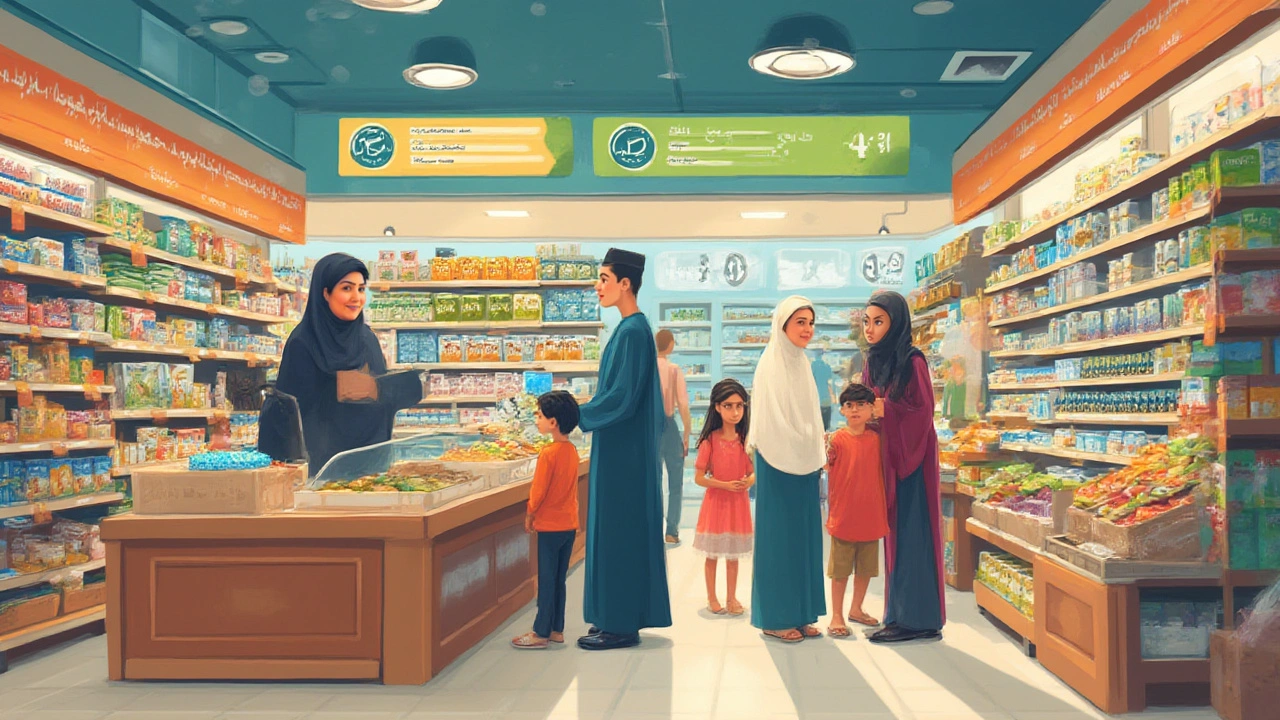What does it actually take to carve out a life in Dubai? Not just surviving, but loving life amidst the sand dunes and skyscrapers. One minute, you’re reading dreamy Instagram posts about rooftop pools and spotless malls; the next, a friend swears you’ll need to sell a kidney to afford an apartment. The reality lives somewhere in between, and honestly, nobody wants to move halfway across the world and find out the budget fell short by half. I’ve scoured up-to-date numbers, dug into my own experience wrangling a family and Luna the cat through UAE life, and even checked what my WhatsApp expat mom group says (no filter). Let’s lay it out just as it is.
Breaking Down the Basics: Housing, Utilities, and Everyday Essentials
If you ask someone in Dubai how much they pay in rent, brace yourself. You’ll hear everything from dizzying penthouse numbers to cozy studios smaller than your teenager’s mood. But here’s a reality check as of July 2025: The average one-bedroom apartment in central Dubai costs AED 7,500 to 10,000 monthly (that’s USD 2,040–2,720 for the math-heads). Go for a cheaper neighborhood further from the Burj Khalifa’s shadow and it’s around AED 5,000–6,500. Villas for a family? Those will easily hit AED 18,000–30,000, depending on size and area.
Don’t forget, most landlords want a year’s rent upfront or split into a few chunky cheques. Utilities like AC, water, and gas turn up quickly. Electricity can shoot past AED 800–1,500 per month thanks to relentless air conditioning. Internet is swift but not cheap—expect around AED 400–600 monthly. A mobile plan adds between AED 100 and 400 monthly.
Grocery prices throw off most newcomers. Expect a bag of apples to run AED 8–15, milk to hover at AED 8–10, and a loaf of decent bread at AED 10–15. Imported products can be twice the price, so you get weirdly good at spotting local brands. A family of four spends about AED 2,500–3,000 monthly if they cook at home—monthly. Eating out? Cafés set you back AED 100 per person, while a meal at Expat Dinner Land costs about AED 250–500 per meal for a group of four. If you have pets, Luna’s cat food is around AED 25 for a small bag, but specialized diets can get pricey quickly.
cost of living Dubai means embracing all sorts of hidden expenses. For example, home cleaning services every two weeks cost around AED 250–350 per visit. Dry cleaning, especially for business suits and uniforms (required at some posh jobs or schools here), adds up too: Dry cleaning shirts costs AED 8–15 each.
| Item | Average Monthly Cost (AED) |
|---|---|
| 1-bedroom apartment (city center) | 8,500 |
| 1-bedroom (suburbs) | 5,750 |
| Utilities (family) | 1,100 |
| Internet | 500 |
| Groceries (family of 4) | 2,500 |
| Cleaning (2x month) | 500 |
School Fees, Healthcare, and Insurance: The Non-Negotiables
If you have kids, this is where the calculator really starts sweating. Ansel’s international school fees run just over AED 40,000 a year (elementary), and that’s not even the high-end British schools, which easily surpass AED 80,000. A quick search finds the average expat family pays about AED 40,000–70,000 per child, per year. Enrollment, books, uniforms—they all stack up, and most schools expect at least a term’s fees upfront. Public schools aren’t usually an option for non-Emiratis.
Healthcare is more than just ‘nice to have’ here. Dubai requires employers to provide basic health insurance, but the free plans barely skim the surface. Upgrading your coverage (which you’ll want with kids or if you have health concerns) costs about AED 6,000–12,000 annually per adult, less for children. Serious treatments, dental, optical, and maternity can mean higher premiums. Still, public hospitals are modern and quite efficient, but you’re usually booking in private clinics for the quickest service. An average urgent care appointment is around AED 300–500.
Pets? Luna’s annual vaccines and checkups are about AED 500–700, but emergency vet fees spike fast—so pet insurance, from AED 1,000 yearly, is plain common sense.
- International school (per child, yearly): AED 40,000–70,000
- Basic private medical insurance (adult, yearly): AED 7,000
- Emergency private doctor visit: AED 500
- Basic pet insurance (per pet, yearly): AED 1,000

Getting Around: Transport Costs and Car Culture
Don’t own a car yet? You have two main choices—embrace public transport or join the car crowd. Dubai’s metro is surprisingly clean, modern, and reaches many spots. Monthly unlimited metro cards start around AED 350. The buses cover a lot too, but rush hour can crush your soul.
Most Dubai residents, though, end up owning a car at some point. Cars here are relatively cheap—the trick is insurance and gas (petrol). Monthly car loans for a decent sedan hit AED 1,200–2,500, depending on down payment, make, and model. Comprehensive insurance is about AED 2,000–4,000 per year. Gas is less painful—around AED 3 per liter, so AED 350–400 per month for daily use. Renting short-term? Expect AED 1,500–2,500 monthly for a basic car.
Taxis are everywhere, and they’re dependable, but frequent use gets costly. A 15-minute ride is about AED 35–45. Careem and Uber are available, with the usual price surges during busy hours. Short hops for daily errands are fine, but if you ferry kids to clubs and school events, owning a car quickly makes sense—and parking at malls is often free or low-cost.
As of this year, a toll system called Salik operates on many main highways. Each time you pass a toll gate, AED 4 is deducted from your pre-paid account. It adds up for commuters, so regular drivers budget an extra AED 120–200 monthly on average.
If you’re planning to bike—well, the heat means it’s a seasonal hobby. There are bike paths in Jumeirah and the Marina, but from May to October, even Luna refuses to leave the apartment during midday.
Lifestyle, Social Life, and the True Dubai Experience
People don’t just move to Dubai for work—they want the lifestyle, sunny beaches, glossy malls, and buzzing social scene. But these perks can quickly chew through your paycheck. Family days out—think LEGOLAND, aquariums, or the latest VR zones—start at AED 120 a ticket, so a weekend adventure might run AED 500 for a family of four after adding food and extras.
Eating out is kind of the national sport. Fancy dinners, brunches (which in Dubai are epic and often boozy), and high tea add up. The famous Friday brunches range from AED 300–600 per adult. A movie night for four, plus popcorn, easily hits AED 250–300. Salon visits—hair, nails, waxing—cost more than in most European cities. My favorite haircut is AED 250; mani-pedi combos are about AED 200–400 depending on where you go.
Gym memberships aren’t cheap either. A regular gym costs about AED 300–600 monthly, while boutique studios (think spinning or pilates) push towards AED 1,000. Yoga in the park is a budget option in the winter, but indoor classes rise steeply during summer months.
Clubs, hobbies, and classes for kids (or grown-ups)—whether tennis, swimming, music, or robotics—are at least AED 500–1,000 per month, per activity. If you’re the adventurous type, dune-bashing adventures and desert safaris might cost AED 200–600 per person.
And yes, there are “hidden” costs just to keep up. Dubai has a zero income tax, but things like registration fees for just about everything (car, school, housing), monthly community association dues if you live in some neighborhoods, and surprise admin fees are part of life.

Tips and Real Numbers: What It Really Takes to Love Living Here
So how much do you actually need to love life in Dubai—not just scrape by, but enjoy some of what makes the city special? For one person living modestly, you’re looking at AED 10,000–13,000 per month (that’s about USD 2,700–3,500). Families of four, especially with kids in private schools, rarely get by under AED 25,000–35,000 a month, and more luxurious lifestyles can push triple that.
- Track your habits. Imported cheese? Specialty gyms? Brunches every weekend? They all add hundreds to your monthly costs.
- Negotiate your work package—especially for school fees and annual flights home. Many employers will chip in, but only if you ask.
- Double-check rental contracts, maintenance clauses, and what’s included (parking, AC, repairs). Surprises are common.
- Public holidays and sales bring big savings on electronics, clothes, and even groceries. Plan purchases around them.
- Many malls host free kids’ days and seasonal festivals. Watch community Facebook groups for low-cost events.
One odd but fun fact: tap water in Dubai is technically safe, filtered from the Persian Gulf, but many residents (like me) invest in a home water filter or go for delivered water coolers (AED 40–60 per refill). It’s mostly about taste and peace of mind.
Ultimately, Dubai is a city of choices and extremes. It’s very possible to find your sweet spot, whether you’re a foodie, a sun-worshipper, or a quiet homebody. The trick is to start with accurate numbers, ask plenty of (sometimes awkward) questions before you land, and carve out priorities. If you set a realistic budget and plan a little, you’ll get your slice of sun-washed skyscraper life—and still have cash left for sunset ice cream with Ansel and a fluffy cuddle with Luna at the end of a perfect desert day.
Dubai Escort
Write a comment